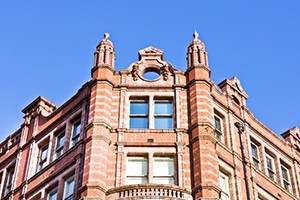Condominium Conversions
 Real Estate Attorneys Assisting Developers in Boston
Real Estate Attorneys Assisting Developers in BostonAt Pulgini & Norton, we advise individuals and developers in condominium conversions. Our seasoned real estate lawyers guide clients from Boston and nearby areas through this potentially complex process. We have substantial experience handling transactions in Massachusetts, and we are well-versed in the intricacies of state and local laws that govern condominium conversions.
How to Convert a CondominiumA multi-family unit, such as a rental apartment building, can be converted into a condominium. This term refers to a group of housing units in which each owner owns his or her individual unit. All the unit owners share the common areas, such as hallways. Each owner is responsible for a monthly maintenance fee that goes toward the upkeep of the condominium, which is managed by an association comprised of unit owners. Converting a property into a condominium requires skillful planning and a thorough understanding of the various state law and local ordinances that affect the conversion process.
The Massachusetts Condominium Act is the state law that governs the process by which a property is converted into a condominium. Specifically, it details which documents are vital to the conversion process, such as the Master Deed and Declaration of Trust or by-laws. The Master Deed converts the property into a condominium. This document describes each unit and the common area, states the purpose of the building and any use restrictions, and indicates how it may be amended. It must be recorded at the local registry of deeds.
The Declaration of Trust or by-laws creates the association that will govern the condominium and defines how it will operate. The document should contain the rules that will apply to all unit owners. For example, the document can state what actions the association may take if a unit owner fails to pay the maintenance fee. It should also describe the method for repairing defects in the common area, and how it will pay for those repairs. Like the Master Deed, the Declaration of Trust must be recorded.
State versus Local LawsIn addition to the Act, developers and individuals who want to convert a property into a condominium should be aware of other state and local laws that could affect the condominium conversion process. For example, an owner must give tenants a one-year notice prior to converting the property into a condominium. Local ordinances, however, can require a longer notice period. In Boston, for instance, elderly, disabled, and low-to-moderate income tenants must receive a five-year eviction notice for condo conversions. Tenants also have the right of first refusal to purchase their unit, and certain tenants must receive relocation benefits. Our attorneys can advise you on the applicable laws that could affect how and when you convert your property.
Considerations for Unit SalesOnce the condo conversion is complete, you can begin to sell the units. As the seller, you should present prospective buyers with a number of documents. These include the Master Deed, Declaration of Trust or by-laws, the Purchase and Sale Agreement, site and floor plans, and the annual budget, which indicates the costs of running the condominium compared to the revenues generated by the monthly assessments and other sources of income. We can help you prepare the documents necessary for the sale of the units.
The conversion process also has tax implications. The building will be taxed as a single-dwelling property until the conversion is accurately reflected in the tax bills, which can take several months. In Boston, for example, a condominium converted in 2013 will likely be billed by the first quarter of 2015. Real estate taxes can be prorated until each unit is properly assessed.
Boston Lawyers Skilled in Protecting Your Property RightsThe property attorneys at Pulgini & Norton offer comprehensive legal services to developers and individuals in condominium conversions near Boston. Our team has more than four decades of combined experience handling real estate transactions. We can advise you on the process and draft the necessary legal documents. We work with engineers, land surveyors, architects, and other professionals to help convert condos in a timely and effective manner. We represent clients in Hyde Park, Andover, and New Bedford, in addition to other Massachusetts communities. Give us a call today at 781-843-2200, or fill out our online form to schedule a consultation.
 Pulgini & Norton, LLP Home
Pulgini & Norton, LLP Home








